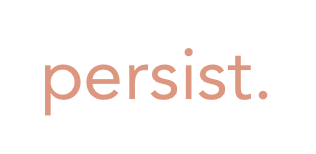Why Domestic Equity Is Hard (and Possible). A Conversation on the Mental Load.
When it comes to household labor, most of us know the story: the chores might be split, but the weight often isn’t. Our recent blog, The 50/50 Myth, unpacked why splitting visible tasks rarely translates to fairness because the invisible CareLoad is where imbalance hides.
Last month, we sat down with Paige Connell, Mom Advocate and Influencer, for a candid conversation on the mental load, domestic equity, and what it really takes to stop carrying it all alone. You can watch the full interview below, or keep reading for highlights.
Why Talking About It Matters
For years, many women assumed they were alone in feeling overwhelmed by the invisible work of running a household. As Paige shared, even with a supportive partner, she once thought: “Maybe I should just do this by myself because I already am doing it by myself.”
That honesty lit a spark. The viral response revealed just how many families were experiencing the same resentment, exhaustion, and confusion, but didn’t yet have the language for it. Today, the term mental load is everywhere, but back then it was a lightbulb moment.
From Collapse to Curiosity
A theme we heard again and again? Transformation often starts at a breaking point. Burnout, illness, or simply the weight of “too much” forces change. But as Paige put it, the work of shifting dynamics doesn’t have to wait for collapse.
The real breakthrough comes from moving beyond anger into curiosity:
How did we come to hold certain standards?
How might upbringing, society, or personality shape them?
Where are differences in standards creating conflict or feelings of failure?
Curiosity opens the door to conversations that shift not just tasks, but understanding.
Shifts in Action: Stop, Shape, Share
Just like in our Shift Series, the conversation pointed back to the three paths toward doing less:
Stop: Recognize the unrealistic goal of “doing it all.” Sometimes the work simply doesn’t need to be done.
Shape: Adjust how you define success from laundry “done” to laundry “manageable,” from a perfect meal to a shared meal.
Share: Build systems that distribute responsibility, not as favors but as a family standard.
Sound familiar? It’s the same system we introduced in The 50/50 Myth. Equity isn’t about keeping score. It’s about creating a foundation that supports everyone.
What We Gained From This Conversation
It’s not your fault. The imbalance is systemic, not personal failure.
Most men are great partners. But many haven’t been equipped with the same tools or expectations. Growth is possible and deeply rewarding.
Equity is worth the work. Change takes effort, but on the other side is more time, connection, and capacity.
Ready to Change the Math?
The 50/50 model was never the goal. What families need is clarity, connection, and a system that works. Persist helps you stop carrying it all alone, shape the load into something visible, and share it in a way that works.
Take the CareLoad Assessment. See the full picture of your household work. You’re not imagining it. You’re carrying more than you should, and it doesn’t have to stay that way.
